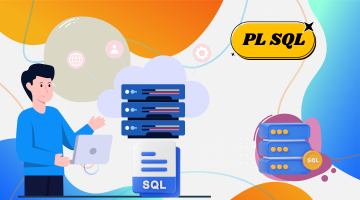Best Oracle SQL Course Training in Chandigarh, Mohali, Zirakpur & Kharar - Fees
Join the best SQL course in Mohali with online and classroom training. Gain in-depth knowledge from industry experts and boost your career with hands-on SQL training
About Our SQL Certification Course – Master SQL from basics to advanced level and become an SQL expert. Learn everything from SELECT queries to database creation with hands-on projects.

🎓 Affordable Pricing Plans & Flexible Batch Timings to Suit Your Schedule Perfectly! ✨
Course: SQL
Prerequisites: None. Anyone from an IT or non-IT background can learn and become an SQL expert!
Affordable Price
- Customized training programs offered

Batches Timing:
- Monday to Friday – 10:00 AM to 7:00 PM
For more enquiry call us: 7888748967 or email us: support@amantpoint.com
🎓 Modules We Cover in This Course
1.1 What is SQL?
1.2 What is Oracle Database?
1.3 SQL History and Versions
1.4 Installing Oracle Database
2.1 SELECT statement
2.2 Retrieving data from a single table
2.3 Filtering data using the WHERE clause
2.4 Sorting data using ORDER BY
2.5 Limiting results with the FETCH FIRST clause (Oracle 12c+)
2.6 Arithmetic operations and aliases
2.7 Working with NULL values
3.1 Introduction to table joins
3.2 INNER JOIN
3.3 LEFT JOIN (LEFT OUTER JOIN)
3.4 RIGHT JOIN (RIGHT OUTER JOIN)
3.5 FULL JOIN (FULL OUTER JOIN)
3.6 CROSS JOIN
3.7 Self JOIN
3.8 USING and NATURAL JOIN
3.9 UNION, UNION ALL, INTERSECT, and MINUS
4.1 GROUP BY clause
4.2 Aggregate functions (COUNT, SUM, AVG, MIN, MAX)
4.3 HAVING clause
5.1 Introduction to subqueries
5.2 Single-row and multi-row subqueries
5.3 Correlated subqueries
5.4 EXISTS and NOT EXISTS
6.1 INSERT statement
6.2 UPDATE statement
6.3 DELETE statement
6.4 Transaction management (COMMIT, ROLLBACK, SAVEPOINT)
7.1 MERGE statement (UPSERT)
7.2 Multi-table INSERT
7.3 Data Import and Export (SQL*Loader, Data Pump)
8.1 Creating tables
8.2 Modifying tables (ALTER TABLE)
8.3 Dropping tables (DROP TABLE)
8.4 Creating and managing constraints (PRIMARY KEY, FOREIGN KEY, UNIQUE, CHECK)
8.5 Creating and using indexes
8.6 Creating and managing views
8.7 Sequences
8.8 Synonyms
9.1 Subquery optimization techniques
9.2 Analytic functions
9.3 RANK, DENSE_RANK, and ROW_NUMBER
9.4 PARTITION BY clause
9.5 Common Table Expressions (CTEs)
9.6 Recursive queries with CONNECT BY (Oracle prior to 12c)
9.7 Recursive Subquery Factoring (Oracle 11g+)
10.1 Understanding execution plans
10.2 Index types and best practices
10.3 Analyzing and gathering statistics
10.4 Hints for query optimization
11.1 Creating and calling stored procedures
11.2 Creating and calling functions
11.3 Working with triggers
12.1 User management
12.2 Granting and revoking privileges
12.3 Role-based access control
13.1 BLOB, CLOB, NCLOB, and BFILE data types
13.2 Working with LOBs
14.1 Date functions (TO_DATE, TO_CHAR, EXTRACT, etc.)
14.2 Date arithmetic
15.1 Exporting and importing data (Data Pump)
15.2 Backup and recovery strategies
16.1 Recap of key concepts
16.2 Resources for further learning
16.3 Best practices and tips for Oracle SQL





